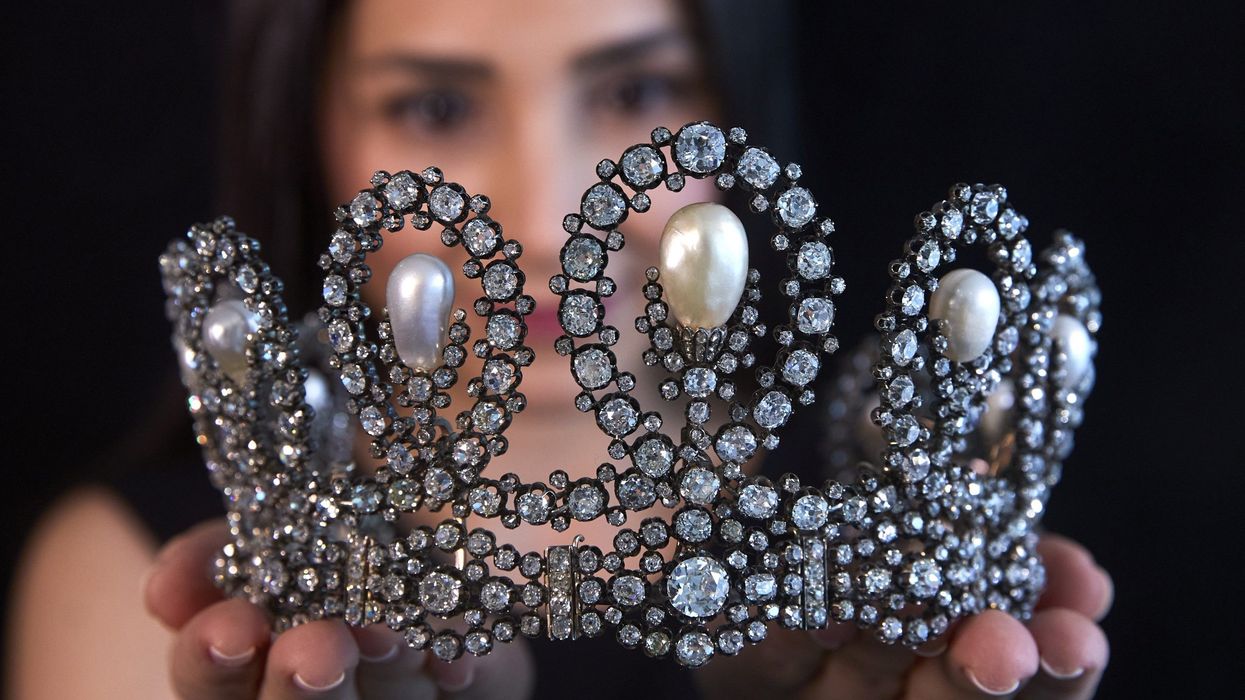SOTHEBY's auction in Geneva took to a new high this year with million-dollar auctions of some rare jewels. The main highlights of this year’s event were a historically significant Savoy royal tiara, which everyone could try on via Instagram, and the largest Kashmir sapphire ever auctioned.
Made of 11 natural pearls and diamonds, the tiara was passed down through generations of Italy's royal family. It sold for $1.66 million on Tuesday (11) at the auction. It is said to be of historical significance as it was a wedding gift to Maria Vittoria dal Pozzo upon her marriage in 1867 to Amadeo I of Savoy, later king of Spain.
The tiara was kept in the Italian House of Savoy royal dynasty for more than 150 years. It is now bought by an Asian collector. Sotheby's said it was one of the highest prices paid for a tiara in recent years.
To create a buzz online and attract the younger generation, Sotheby's had introduced a filter on Instagram that allowed people to create a picture of themselves wearing the Savoy tiara in a sumptuous Italian palace.
Another piece of jewellery to make a mark on this year’s Geneva auction is the rare 55.19 carat Kashmir sapphire which was formerly in the collection of Maureen Constance Guinness, a marchioness of the aristocratic Anglo-Irish brewing family. This, alongside another cushion-shaped one of 25.97 carats, stood out in the collection as Kashmir sapphires of over 30 carats are considered extremely rare.
Since the mining of Kashmir sapphires only lasted from 1882 and 1887, these gems are considered one of the most coveted pieces of jewellery. These were brought by the British jeweller Graff.
Another standout piece was a pendant set with a 104.40-carat pear emerald which was sold for $2 million.
The auctioneers said that they have witnessed unprecedented global demand for royal jewellery, particularly from younger clients in Asia.




